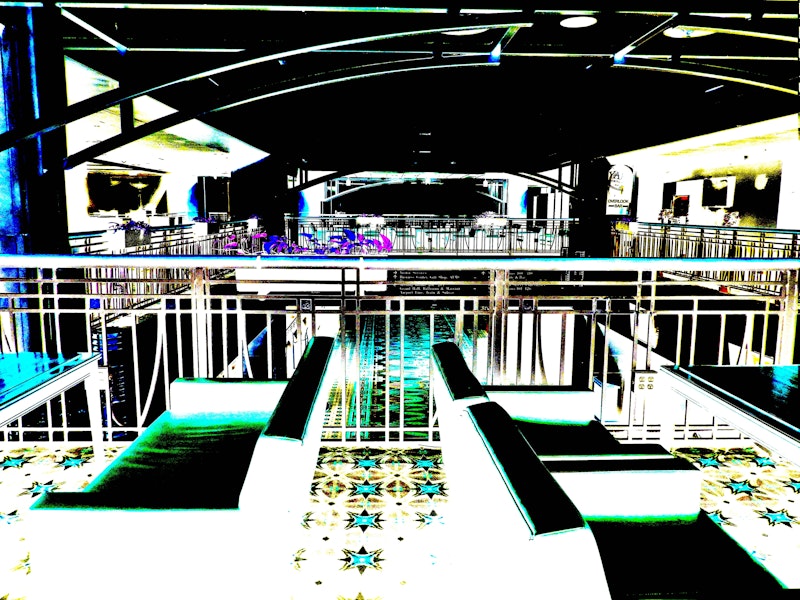Meredith staggered into the deserted convention hall right around 7:45 p.m., cold and tired after every unexpected detour: the subway, Union Square, Grumpier Old Men, Virgin Megastore, Julian Plenti, Paul… what was his last name?
Half a dozen interns were still hanging signs up, decorating booths, and fetching water, snacks, alcohol, and drugs for any special guests who wanted some special treats. There were no A-list directors or actors coming to this convention: no John Carpenter, no David Cronenberg, not even Wes Craven (he was busy prepping Scream that winter). Not William Lustig, beloved New York filmmaker of Maniac fame, who was “shooting a film in Greece”—Enzo knew it was a lie, and even the Fangoria organizers thought Lustig was blowing them off. But he was, in fact, in Greece—trying to scrounge up finishing funds for his 1996 direct-to-video slasher Uncle Sam.
Meredith found an empty seat near the front and sat as far away from the other nerds as possible. She pulled out an autograph book and an issue of Fangoria from last year. John Carpenter was being interviewed for In the Mouth of Madness, and said this about William Friedkin: “It’s so strange! I don’t get this. I mean, William Friedkin has said that The Exorcist is not a horror movie—get out of here! He’s a bum! It’s a horror movie!” Meredith liked In the Mouth of Madness: it was the first Carpenter movie she was able to see in a theater (she bought a ticket for The Brady Bunch Movie and snuck in), and unlike 1992’s miserable Memoirs of an Invisible Man, this was a real Carpenter film, another horror masterpiece from a living legend.
Meredith didn’t know then how unhappy John Carpenter was toiling away in the middle, unable to reach the heights of the industry that he briefly glimpsed before the failure of The Thing in 1982. She assumed he didn’t enjoy directing Chevy Chase and Daryl Hannah, but had no idea how many screaming fits and near nervous breakdowns Carpenter had on the set of that miserable film. It was true: he broke a clipboard in half over his knee when Chase refused to put on his invisible man makeup.
And for what it’s worth, Meredith was looking forward to Jade, William Friedkin’s ill-fated 1995 thriller written by Joe Eszterhas.
Just then, an unkempt and manic Enzo B. Bucci came storming into the mostly empty hall, still lit by fluorescent lights, screaming at everything and no one. “WHAT AM I EVEN DOING HERE! IS NOT MY HOME IN ROME? GIUSEPPE! GIUSEPPE, WHERE ARE YOU? GIUSEPPE, WHERE ARE THE AMERICANS WHO PROMISED TO GIVE ME MONEY?” Enzo looked exactly like he did in his October 1992 Fangoria profile: sick, jaundiced, irritated, tired, verging on hopeless. His Coke bottle glasses made his eyes pop out so much that you could only take his unhinged rants so seriously. The director was escorted out by security and a very frenzied Fangoria employee that night, told to “go to the green room,” and to “wait there until everyone else shows up.”
Only then, Meredith realized the convention might not be happening: the Hotel Pennsylvania was deserted, and less than hour before the exhibition was due to start, barely anyone had showed up. She wondered if she should’ve gone with Paul to see The Smashing Pumpkins, but no, not without a ticket—but what was his last name? She couldn’t remember… if he even told her in the first place…
One night in New York City, January 1996, Enzo B. Bucci saw how much America “loved him”: six pasty kids in parkas in a freezing Midtown hotel. If he had a gun, he would’ve killed himself and everyone around him right then and there. But Enzo didn’t have a gun, so he sat down and started complaining to the room about his myriad health problems, and how little hope he had for anything much less the future.
—Follow Monica Quibbits on Twitter: @MonicaQuibbits

